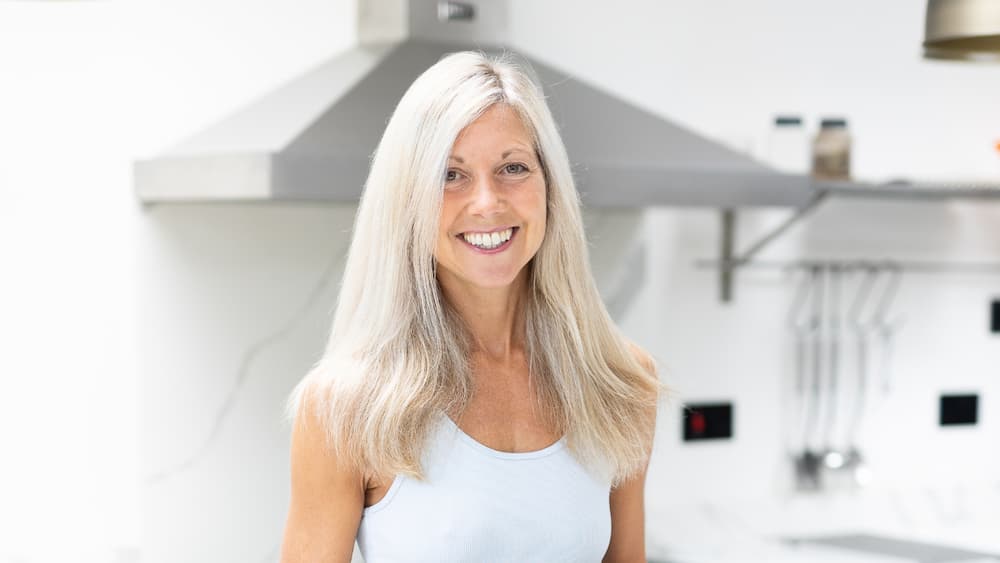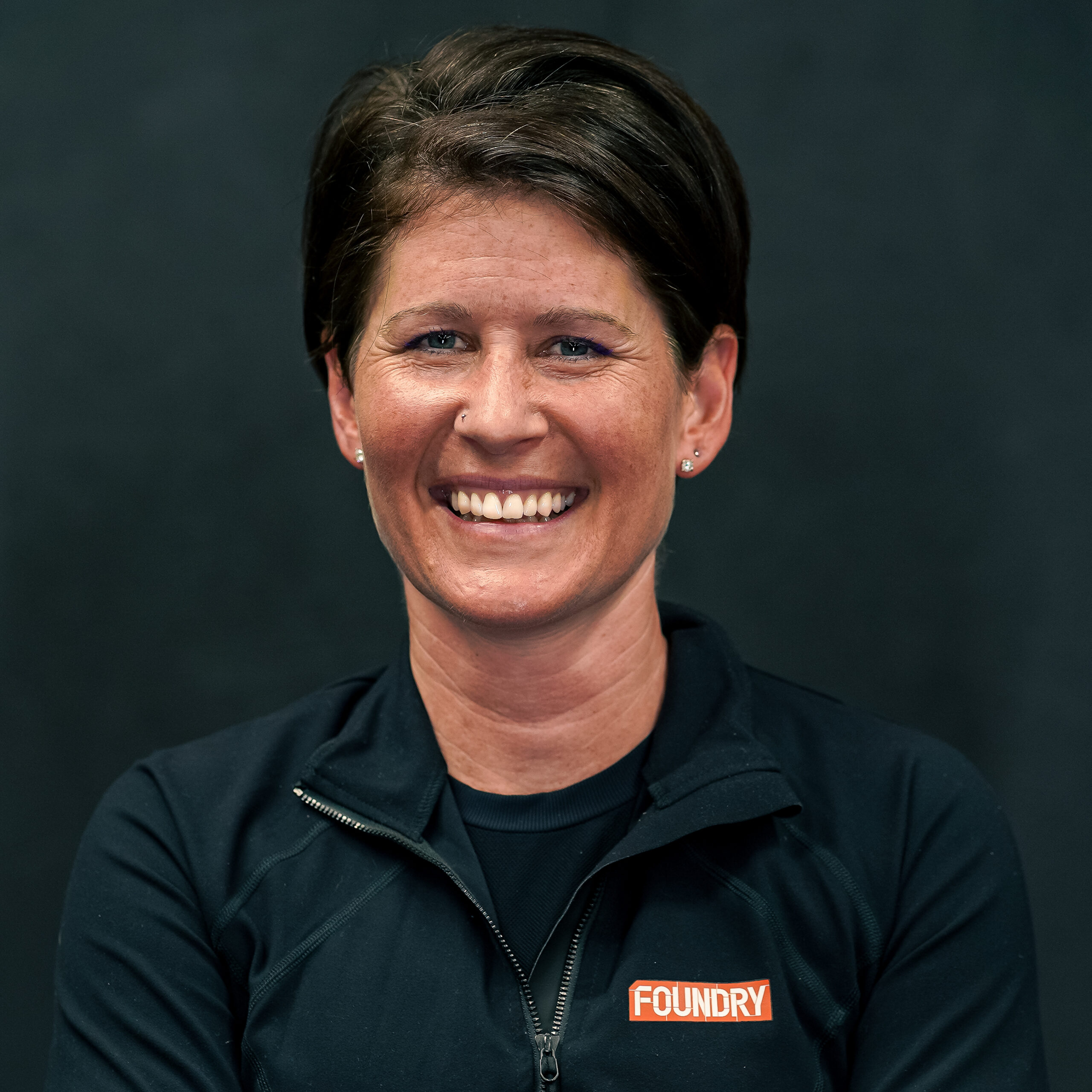
Categories
A Simple Nutrition Step to Avoid Menopause Weight Gain
This blog post was written by Keris Marsden, who recently delivered a workshop at Foundry Richmond.
Keris has devised an integrated, evidence-based approach to perimenopause and menopause health that includes nutrition, exercise, mindset support and supplements. This post originally appeared on her website, here.
Most women are led to believe menopause is synonymous with weight gain.
Terms like “Menopause Middle” don’t help as the overriding message seems to imply it’s unavoidable.
Many women notice their usual healthy eating and exercise strategies no longer seem to work as they approach peri menopause or transition through menopause. Some women change nothing and yet still experience weight gain.
The reasons for this is the changing levels of estrogen, progesterone and testosterone. These can cause an increase in insulin resistance (which is associated with weight gain), decrease muscle mass, increase fatigue and impact joint health (which makes exercise trickier).
There’s one simple nutrition tweak that will help you (if you’re a perimenopausal or menopausal woman) to combat these changes.
What is it? Consuming (a lot) more protein.
The menopause body
On average a woman may gain 2-5 lbs (approx. 1-2 kgs) during menopause. Age is also a factor in this as weight gain from age 30 onwards is typically 0.6 – 1.7 lbs (0.3-0.8 kgs) a year.
Body fat distribution also shifts towards more the middle, so you may see your body change from a pear shape to an apple shape. Abdominal weight gain can increase the risk of inflammatory diseases.
The body is also vulnerable to muscle loss with age; this is known as Sarcopenia. This makes it harder to control blood sugar levels and makes you vulnerable to musculoskeletal complications.
How protein helps
In a nutshell eating more protein helps you:
· Increase and retain muscle mass which is beneficial for your metabolism
· Maintain and build your joints and bones enabling you to exercise regularly
· Feel full for hours and lessens the need to snack
· Decreases your sugar cravings
· Gives you more energy and better cognitive function by lowering post meal, blood sugar levels
How much protein?
It’s easy to overthink this, especially if you do the protein maths (below). The goal is really to eat as much as you can feasibly can at your main meals and it’s likely your need will be covered.
You may need to reduce your other macronutrients (carbs and fats) slightly to allow for more energy from protein. Most menopausal women benefit from some adaptations to carbohydrate intake if poor blood sugar regulation and insulin resistance is occurring.
Studies show to lose or maintain weight and build muscle a menopausal woman should aim to consume between 1.2g-1.5g per kilo of bodyweight.
Example:
If you weigh 60kg: Protein intake = 60 x 1.5g = 90g protein per day. This translates to roughly 1–2 palm size servings at mealtimes.
Protein, especially leaner sources like chicken, eggs, turkey, low fat dairy and fish are difficult to overeat as they’re so satiating.
What proteins and when
It’s especially helpful to consume a variety of proteins to obtain all the different amino acids the body requires. Ideally protein should be spread across several meals and you can have a protein based snack like boiled eggs or a dessert like Greek yogurt or a smoothie bowl.
Here’s some sample protein serving sizes and a suggestions for a typical protein rich menu:
Protein serving sizes
- 2–3 medium/large eggs
- 150g legumes
- 1 medium chicken breast
- 2-3 chicken thighs or drumsticks
- 1–2 fillets white fish
- 1 fillet salmon
- 1 fillet mackerel
- 100–150g prawns
- 120-50g serving mince
- 1 x 90g tin sardines in spring water (drained weight)
- 1 x 112g tin tuna fish in spring water (drained weight)
- 120-150g tofu
- 170-200g natural yogurt/quark
- 150g cottage cheese
- 20–30g protein powder
High protein menopause menu
Here are some main meal and snack ideas to help inspire you to get more protein on your plate.
Breakfast meal ideas
· Overnight oats (or porridge) with chia seeds, plain natural yoghurt (or protein powder) and berries
· Greek yoghurt with grated apple, berries, lemon juice and chopped nuts
· Boiled eggs and fruit salad
· Scrambled eggs or sliced turkey on rye or sourdough toast with mashed avocado
· Protein smoothie: 25g protein powder or 150g yoghurt with berries, milk and nut butter
Light meals or lunch ideas
• Mixed salad leaves topped with tomatoes, cucumber, peppers, olives, and a convenient protein source (tinned fish, cooked prawns, cooked tofu or sliced meat/poultry)
• Baked potato topped with cottage cheese or tuna mixed with natural yoghurt and side salad
• Rye bread topped with either sauteed tofu, smoked salmon or slices of cooked meat with rocket and tomatoes
• Meat slices used as a wrap and filled with vegetable cruditiés, mashed avocado, or hummus
• Shop brought vegetable soup with a side of either boiled eggs, cooked chicken, smoked tofu or tinned fish
• Microwave quinoa with chopped avocado, smoked tofu and rocket
Main meal ideas
• Omelette (filled with either ham, cheese, smoked salmon or chicken) with a side salad
• Homemade meat or veggie burgers with sweet potatoes wedges and oven roasted vegetables
• Spinach, chickpea and aubergine curry topped with natural yoghurt and served with brown rice
• Stir-fry chicken, tofu or prawns with vegetables. Serve with ⅓ packet of microwave brown rice or quinoa
• Seafood paella with mixed leaf salad
• Good quality sausages with sweet potato mash and oven roasted vegetables
• Pan fried fish or chicken breast served with ½ a packet of ready-to-eat puy lentils topped with hummus or salsa
• Shepherds pie with added vegetables (carrots, peas, onions and celery) topped with sweet potato mash.
• Pan-fried mince with tomatoes, spinach and spices (e.g., curry powder or jerk spices)and brown rice
Snack ideas
• Oatcakes topped with smoked salmon or turkey sliced
• 2-3 hardboiled eggs sprinkled with soy sauce
• A natural protein bar (no added sugar)
• Protein smoothie or shake
• Chicken pieces with salsa
• Plain yoghurt and berries
• Small pot of pan fried or smoked tofu and cashews in soy, lime and chilli


